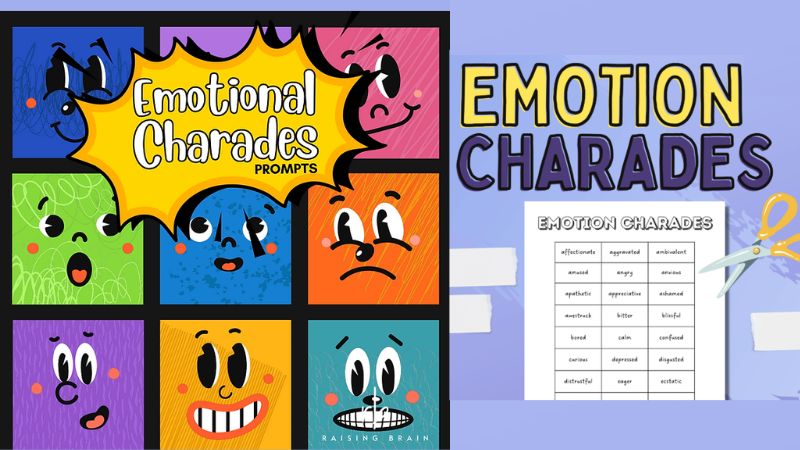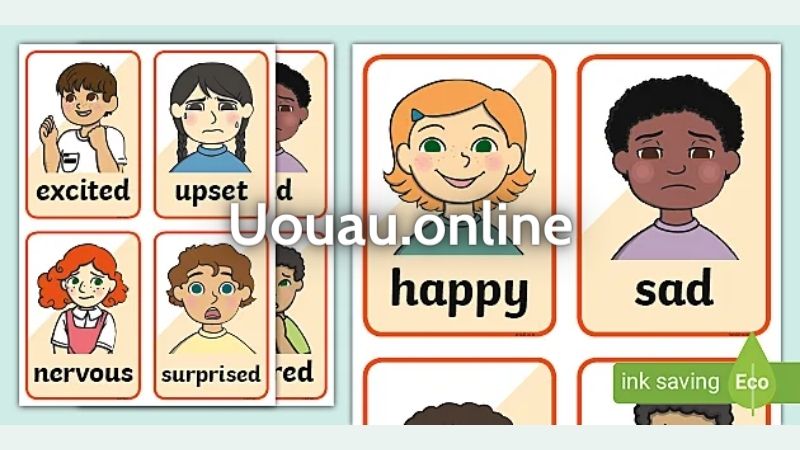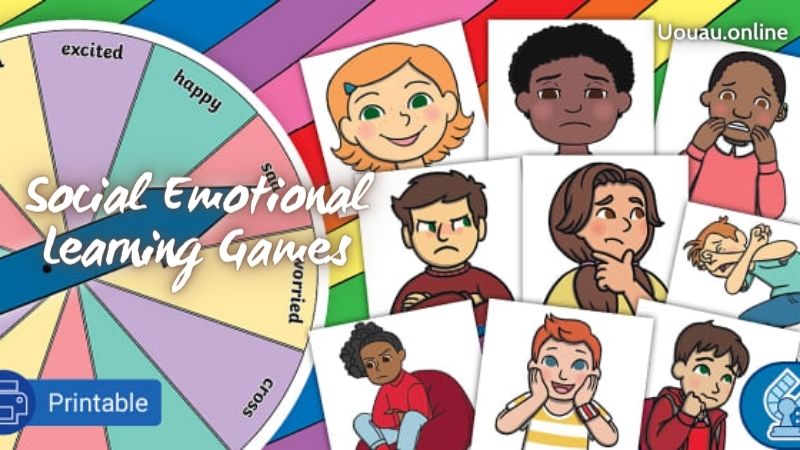In today’s fast-paced world, where technological advancements and academic achievements often take precedence, the importance of nurturing emotional intelligence cannot be overstated. Social Emotional Learning (SEL) has emerged as a critical component of education, focusing on developing essential skills like self-awareness, self-regulation, empathy, and interpersonal relationships. While traditional teaching methods are undoubtedly valuable, integrating social emotional learning games from Uouau.online into educational curricula offers a dynamic and engaging approach to fostering emotional intelligence in learners of all ages.
10 Social Emotional Learning Games
Social emotional learning games provide a structured yet enjoyable platform for individuals to explore and understand their emotions, interact with others, and develop vital life skills. These games are designed to facilitate meaningful interactions, encourage empathy, and promote positive social behaviors. By actively participating in these activities, individuals not only enhance their emotional intelligence but also cultivate a deeper understanding of themselves and those around them.
1. Emotion Charades

One such game that exemplifies the effectiveness of social emotional learning is Emotion Charades. In this game, players are tasked with expressing various emotions through non-verbal cues, while others attempt to guess the emotion being portrayed. Through this interactive experience, participants develop skills in emotional recognition, expression, and interpretation. By engaging in Emotion Charades, individuals learn to identify and articulate their feelings, thereby enhancing their emotional vocabulary and self-awareness.
2. Feelings Bingo
Feelings Bingo is another social emotional learning game that promotes emotional literacy and awareness. Unlike traditional bingo, where numbers are called out, Feelings Bingo features emotions as the key markers. Players mark off emotions they have experienced or can relate to, encouraging them to reflect on their own emotional experiences. This game fosters a sense of connection and empathy among participants as they recognize and validate each other’s feelings. Moreover, Feelings Bingo provides a platform for discussing and normalizing emotions, contributing to a more supportive and inclusive learning environment.
3. Kim’s Game
Kim’s Game is a classic memory game that can also be adapted to promote social emotional learning. In Kim’s Game, players are presented with a tray of objects for a brief period, after which they must recall as many items as possible. This activity not only enhances memory and attention skills but also encourages participants to observe and identify details—a crucial aspect of emotional intelligence. By sharpening their observational skills, individuals become more attuned to the emotions and cues of others, leading to improved social interactions and empathy.

4. The Emotion Wheel
The Emotion Wheel is a versatile tool that can be used to facilitate discussions and activities related to social emotional learning. Divided into different emotions, the Emotion Wheel serves as a visual aid for exploring and understanding various feelings. By spinning the wheel and sharing personal experiences associated with the displayed emotion, participants engage in reflective practices that promote self-expression and empathy. The Emotion Wheel encourages individuals to acknowledge and validate their emotions, fostering a sense of emotional well-being and resilience.
5. The Zones of Regulation Board Game
The Zones of Regulation Board Game is specifically designed to teach self-regulation skills, a fundamental aspect of social emotional learning. Based on the Zones of Regulation framework, this game helps players identify and manage their emotions by categorizing them into different zones—such as green for calm, yellow for frustrated, blue for sad, and red for angry. By navigating through various scenarios and challenges, players learn strategies for coping with different emotional states and regulating their behavior accordingly. The Zones of Regulation Board Game empowers individuals to recognize and respect their own emotions while also promoting understanding and empathy towards others.
6. Social Skills Board Game
Social Skills Board Game offers a comprehensive approach to social emotional learning by integrating various interpersonal skills into gameplay. As players move around the board, they encounter scenarios that require them to demonstrate skills such as active listening, empathy, cooperation, and conflict resolution. By actively participating in these simulated social interactions, individuals develop practical strategies for navigating real-life social situations. Social Skills Board Game encourages communication, collaboration, and mutual respect, fostering positive relationships and a supportive learning environment.
7. Emotional Check-in Cards
Emotional Check-in Cards provide a simple yet effective way to promote social emotional learning in group settings. These cards contain prompts and questions designed to encourage individuals to reflect on their emotions and share their experiences with others. By engaging in regular check-ins, participants develop a habit of self-reflection and emotional expression, leading to improved self-awareness and communication skills. Emotional Check-in Cards create a safe and supportive space for individuals to share their feelings, fostering a sense of belonging and connectedness within the group.

8. Empathy Toy
Empathy Toy is a tactile puzzle or building set that encourages players to describe their creations to others without showing them directly. This activity promotes communication, perspective-taking, and empathy as players must convey their ideas effectively to their peers. By actively listening to and understanding each other’s perspectives, individuals develop a deeper appreciation for diverse viewpoints and experiences. Empathy Toy fosters empathy and collaboration, emphasizing the importance of understanding and respecting the feelings of others.
9. Gratitude Journal
Gratitude Journal, while not a traditional game, is a powerful tool for promoting social emotional learning and well-being. By writing down things they are grateful for each day, individuals cultivate a positive mindset and develop resilience in the face of challenges. Gratitude Journal encourages individuals to focus on the positive aspects of their lives, fostering a sense of appreciation and contentment. Moreover, by acknowledging the contributions of others and expressing gratitude towards them, individuals strengthen their interpersonal relationships and sense of connection with others.
10. Story Cubes
Story Cubes offer a creative approach to social emotional learning by stimulating imagination and storytelling skills. Each cube features different images that players use to create a story collaboratively. This activity encourages creativity, communication, and perspective-taking as players incorporate various elements into their narratives. Story Cubes provide a platform for exploring emotions, relationships, and moral dilemmas through storytelling, fostering empathy and critical thinking skills.
Sum Up
In conclusion, social emotional learning games offer a dynamic and engaging approach to developing essential life skills. By actively participating in these activities, individuals enhance their emotional intelligence, develop empathy, and cultivate positive social behaviors. Whether through role-playing, memory games, or storytelling, social emotional learning games provide valuable opportunities for individuals to explore and understand their emotions, interact with others, and build meaningful connections. As educators and parents, integrating social emotional learning games into educational curricula and daily routines can significantly contribute to the holistic development and well-being of learners of all ages.
